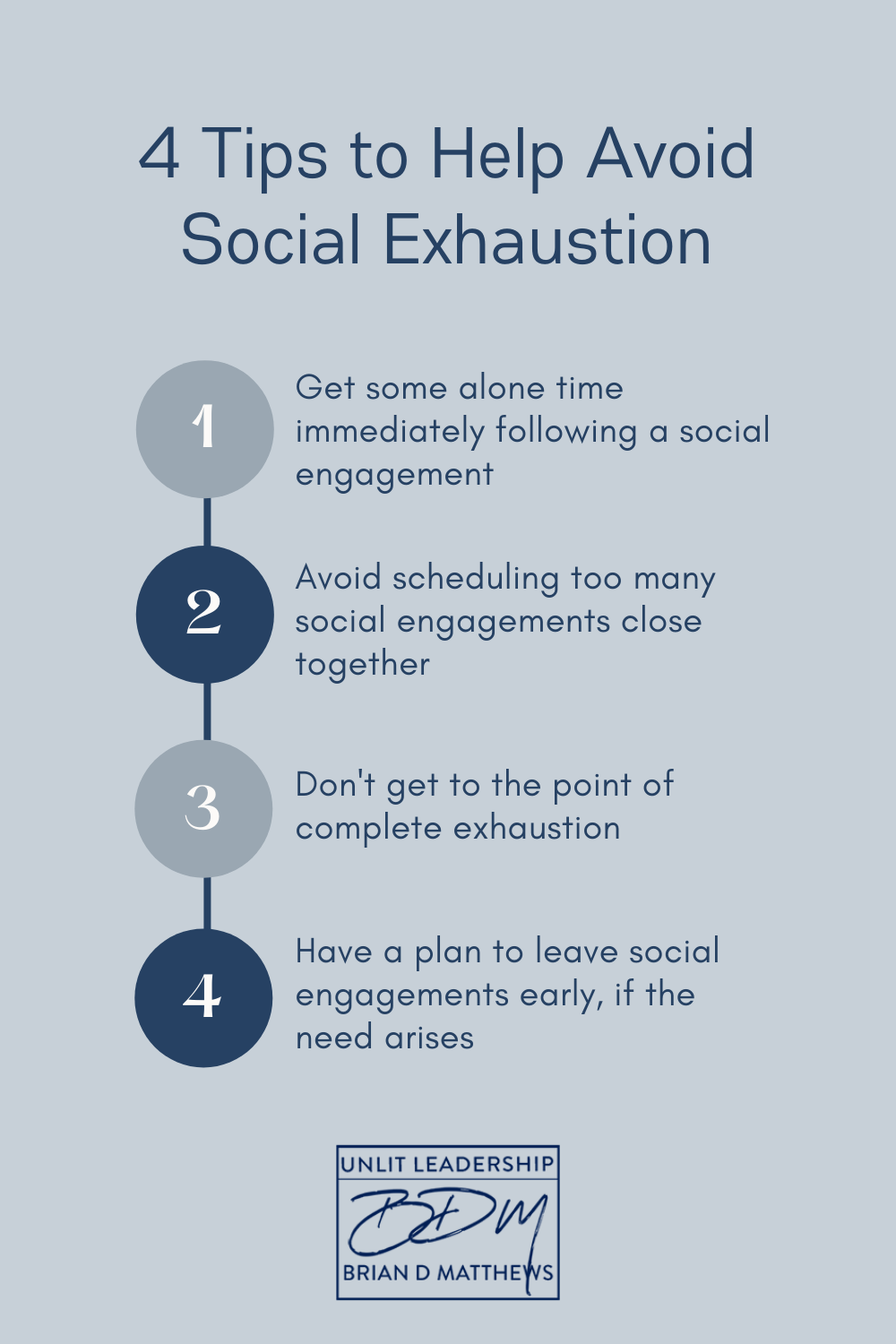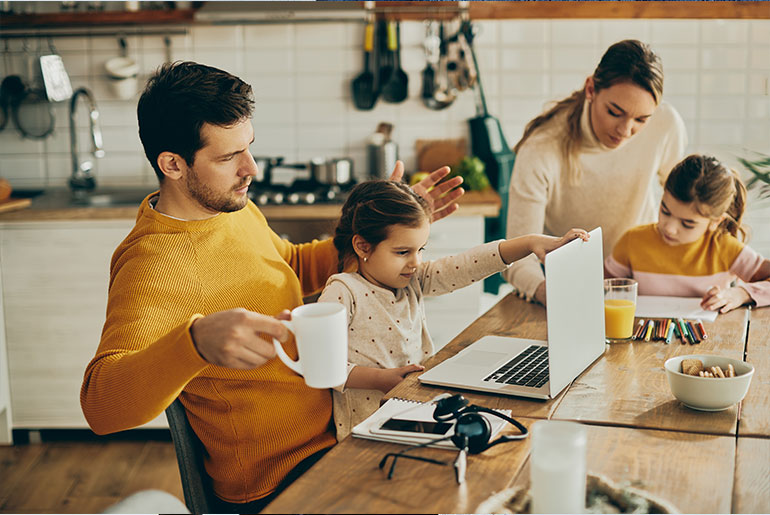I consider myself an ambivert, equal parts introvert and extrovert. Though this may sound ideal, having the best of both worlds, I also experience the drawbacks of both. I get that itch to be around people, as well as the social exhaustion from too much socializing. As the U.S. attempts to work their way towards the new normal and social engagement have increased, I am beginning to feel the effects of my introverted side.
If you are anything like me when returning from a social engagement, you need recovery time. So for the morning’s quickie, I will provide my fellow introverted leaders four tips for dealing with social exhaustion.

What is social exhaustion?
You may have read or heard terms such as social burnout, social exhaustion or even the introvert hangover. In essence, these terms are all the same, but what do they mean? In a recent article published in PsychCentral, Geraldine Orentas describes these conditions best as “emotional and physical responses to social overstimulation that leaves you feeling drained and exhausted”.
Though there is no official medical condition if you are an introverted leader, you know how it feels to be emotionally drained after a long day of socializing. Unfortunately, the only cure is to avoid social engagement, which isn’t an option for the introverted leader. However, there are ways to recover and minimize the effects.
If you have ever been in the military, you have heard of “mandatory fun”. Mandatory fun usually refers to some team-building event you must attend or, as leaders, must organize and lead. Extroverts are generally exhilarated from the events, while introverts are often the opposite; they are emotionally and sometimes physically drained. I’ve been on both sides of the coin as a leader and a member of a team-building event. As a result, I have learned a couple of tricks to avoid and recover from social exhaustion.
Get some alone time immediately following a social engagement
As soon as I get home from a taxing social event, I usually veg out for at least 30 mins, not doing chores, reading work e-mails, or engaging in too much family time. My family understands that I need to recharge. I usually head to my office, put on some music or a star trek episode, and relax. For those who are into meditation, this is also a great technique to help rest your mind. The best medicine for the introvert is some alone time, whether it be Tik Tok on the couch, meditation, music or just a quiet room to yourself.
Avoid scheduling too many social engagements close together
Recovery time for introverts varies depending on the person. When I have been out with friends for a late-night socializing or a work event that lasts a few hours, I avoid booking anything the next day. Yes, the immediate alone time mentioned above will help. However, that short alone time is similar to when your phone battery is dying, and you do a quick charge and get it up to about 25%. For me to fully recharge, I usually need a day or two. You may be different, and this is where self-awareness comes in, know yourself and plan accordingly.
Don’t get to the point of complete exhaustion
Speaking of knowing yourself, know your triggers and avoid getting to the point of complete exhaustion. Like exhaustion caused by working out of being in the sun too long, some indicators arise that let you know you are reaching the point of exhaustion. In a recent article, Introvert Burnout: How To Overcome Social Exhaustion, Viktor Sander provides a couple of key signs to look for when you are reaching the point of social exhaustion. These signs include feeling detached, the onset of a headache, irritability and the inability to focus. When the symptoms begin to arise, have an exit strategy.
Have a plan to leave social engagements early, if the need arises
As a leader, you know the importance of a plan and having multiple backups for when things inevitably go astray. Social engagements can be exhausting, but if you properly plan, you can lessen your stress. Plan for short breaks during extended periods. If you are running the event, be sure to take on the tasks that don’t require extraversion. Also, have a plan for when and if you start feeling the effects of social exhaustion. When possible, be prepared to leave the event a little early if need be.
Final Thoughts
Unfortunately, introverted leaders can’t wholly avoid social interactions as much as they may want to. However, an introverted leader reduces the risk of social exhaustion. The key to success is self-awareness. If you can recharge your mental battery, avoid scheduling too many social engagements together, and know and plan for your triggers, you may minimize the adverse effects of social engagements. Are you an introvert? Do you feel drained after a social engagement or even an overtaxing day as a leader? Feel free to share your thoughts below on how you handle and avoid social exhaustion.



